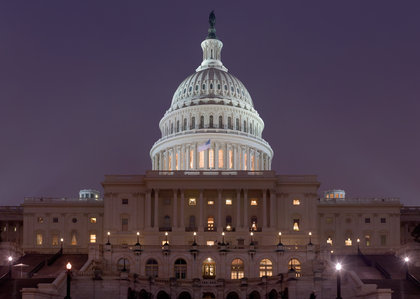We’re now two days away from a government default, an event that would spell nothing but trouble for the nation’s housing market.
We’re now drawing uncomfortably close to a government default, and though we have written on a couple of occasions on how the shutdown has impacted the housing market, a default would be a whole other, infinitely scarier matter.
How much scarier? Here are some things to keep in mind:
A Ripple Effect
Though much has been written about the economic impact of sequestration cuts, the government shutdown and other austerity measures, those impacts have been primarily domestic; employment, consumer demand and other facets of the economy may slow down, but that doesn’t necessarily mean bad things for international markets.
As Business Week points out, though, the U.S. government has $12 trillion (remember, a trillion is a thousand billion!) in outstanding debt that is critical to short-term borrowing among investment banks and Wall Street firms, and a government default would immediately remove that support, leading to bank collapses the world over; because this is uncharted territory, though, nobody can really put a number behind how damaging that would be, but recent projections by Goldman Sachs suggest it could cost 4.2 percent of GDP this year alone, or more than $658 billion (and remember, a billion is a thousand million!).
The Chinese Equation
Further complicating matters is how the Chinese economy will respond. The Chinese government, David Kestenbaum of NPR pointed out, holds $1.2 trillion in U.S. Treasury bonds. Although the Chinese government is quite flush (and would be able to stave off a government default in the short-run), it could begin shifting its money out of U.S. bonds and towards other, safer investments, should a default occur – and if that happens, the U.S. will pay a higher interest rate on its debt, which will drive up rates on everything from cars, to student loans, to, yes, mortgages.
View from the Real Estate Seats
Probably the most optimistic view has come from Lawrence Yun, the chief economist for the National Association of Realtors, though his projections are still dire.
Should the debt limit deadline expire, Yun said, the government could opt to pay down the interest on its debt and avoid a default; however, that would mean holding off on paying some of its bills. For instance, should the government spend less money on Social Security checks? less on military equipment? less on paying down interest costs on borrowing?
Such prioritizing, Yun continued, would still lead to an increase in interest rates on Treasury bonds, with investors looking elsewhere for safer investments; and where the rates on Treasury bonds go, so go mortgage rates.
And how would an increase in mortgage rates affect housing? Yun estimates that home sales will drop 350,000 to 450,000 for every 100 basis-point increase in mortgage rates.
No matter how you cut it, a government default would be bad news for housing.

